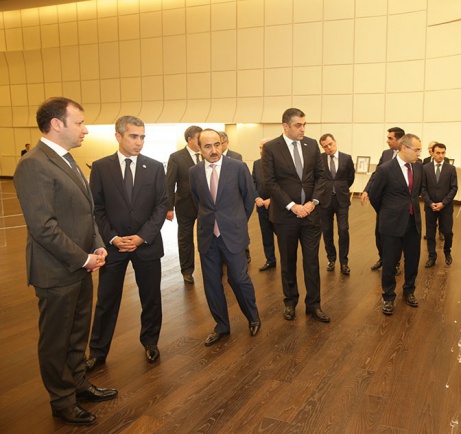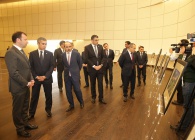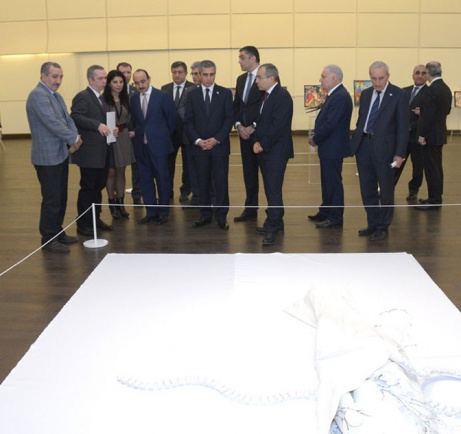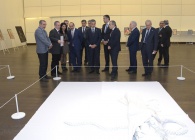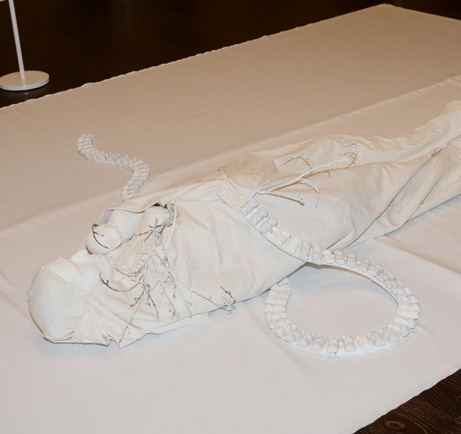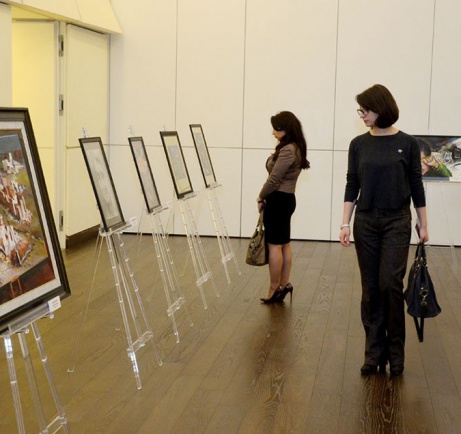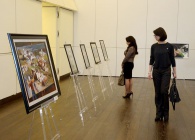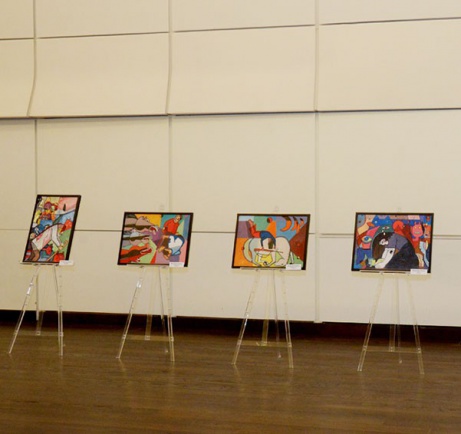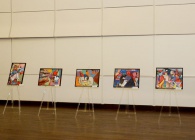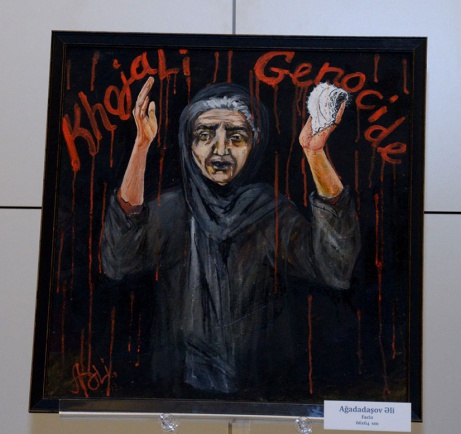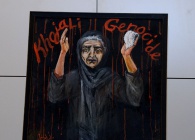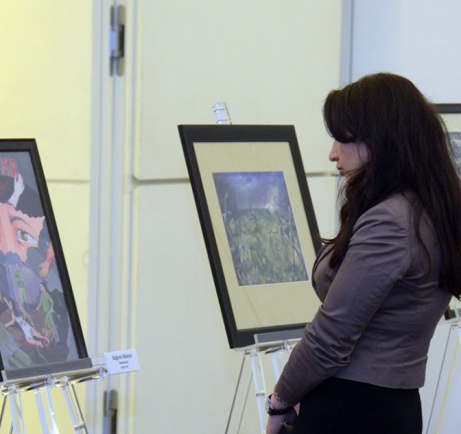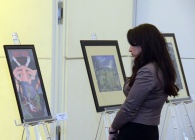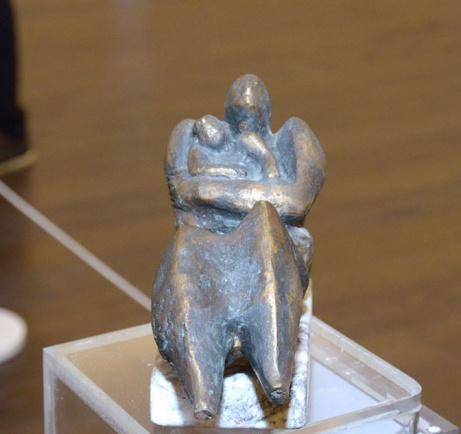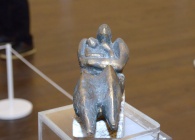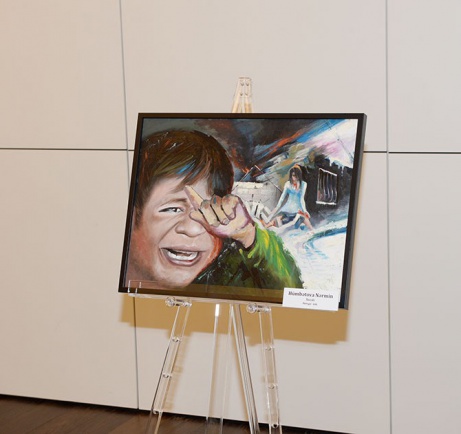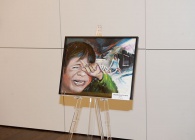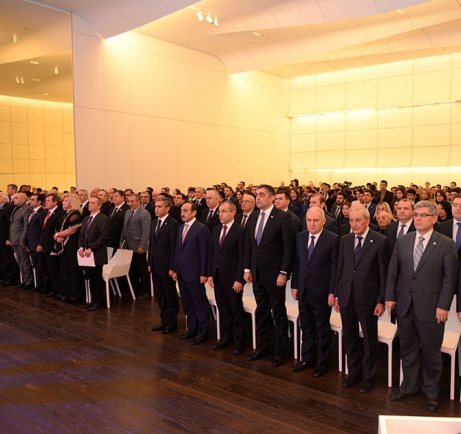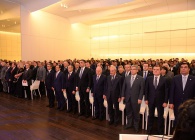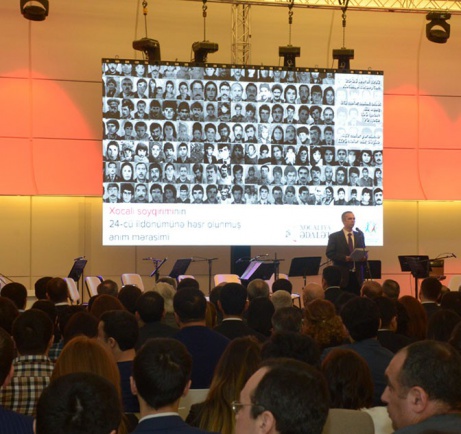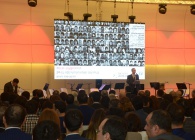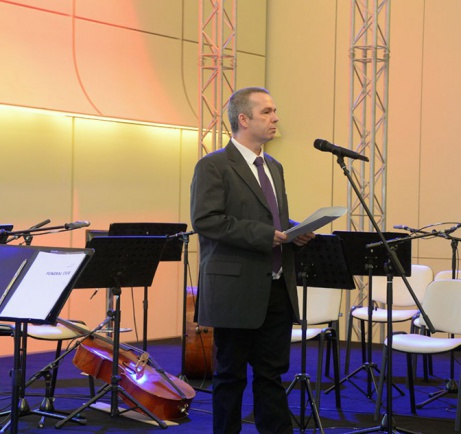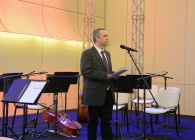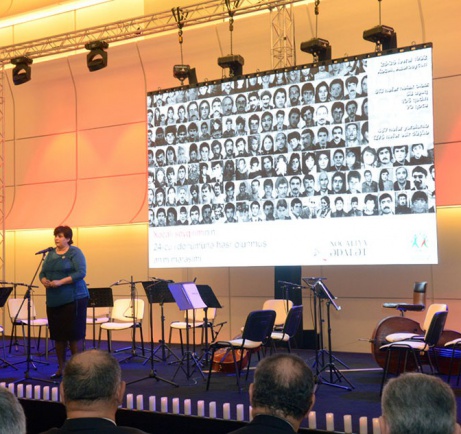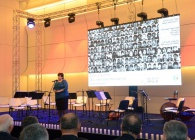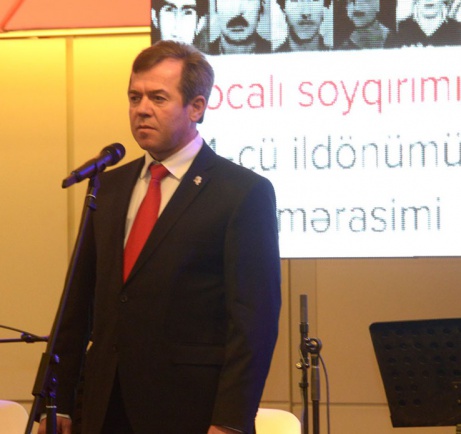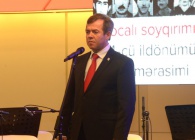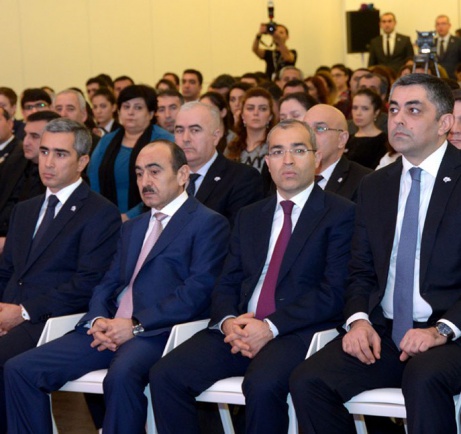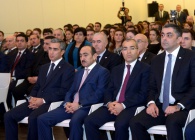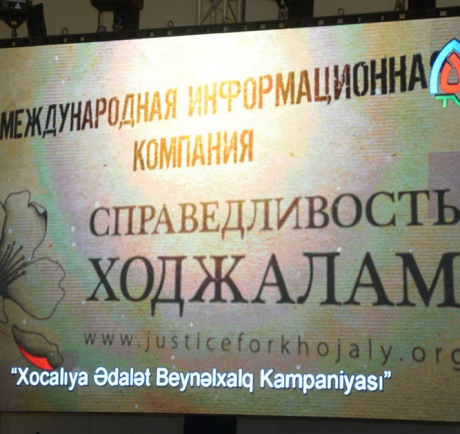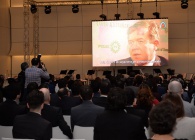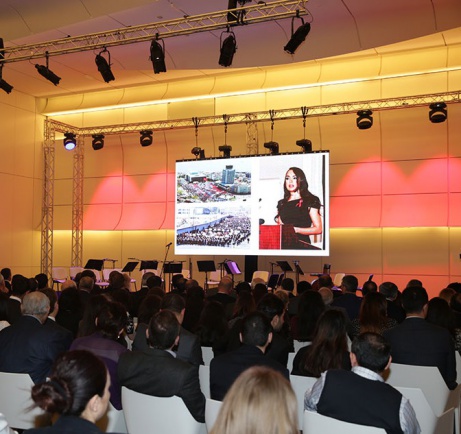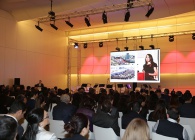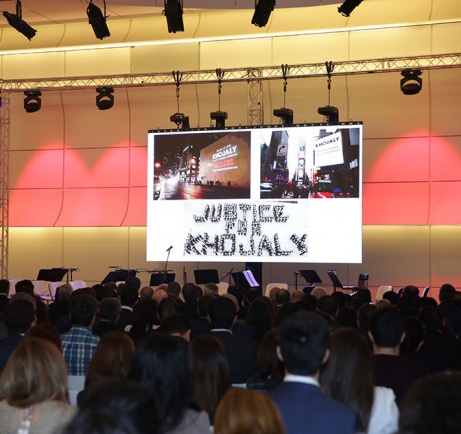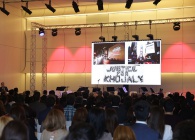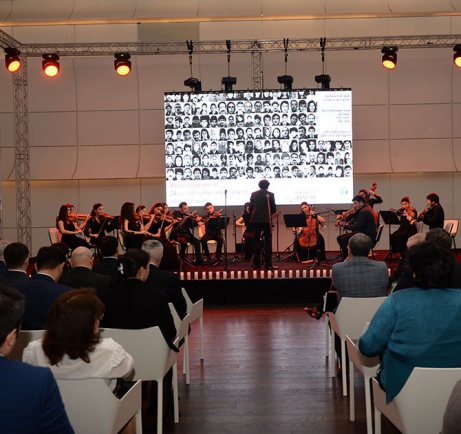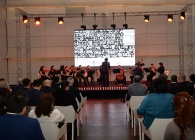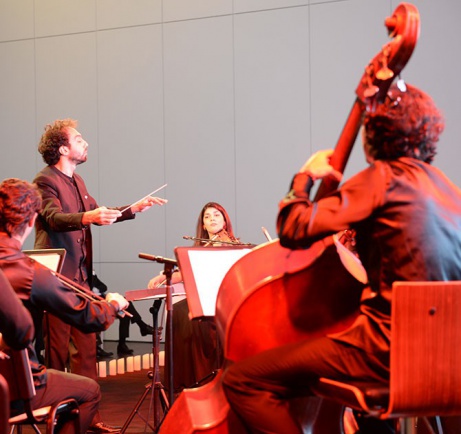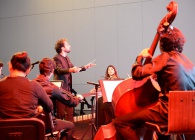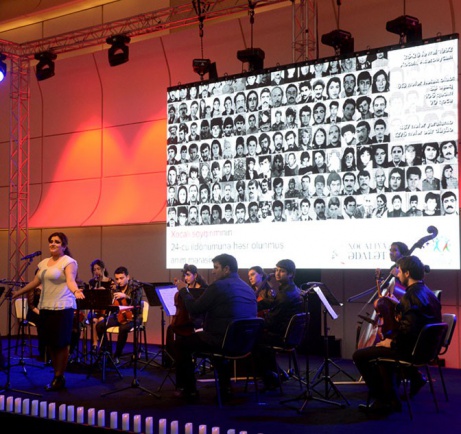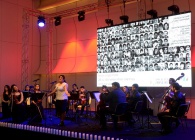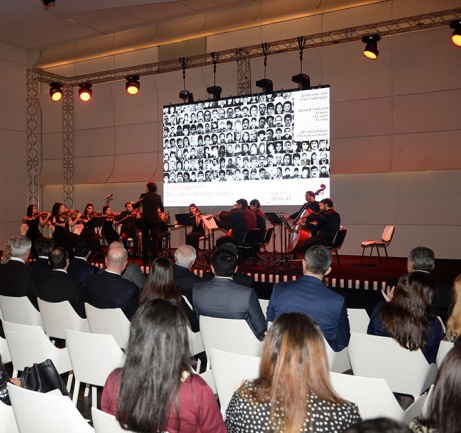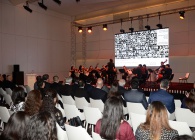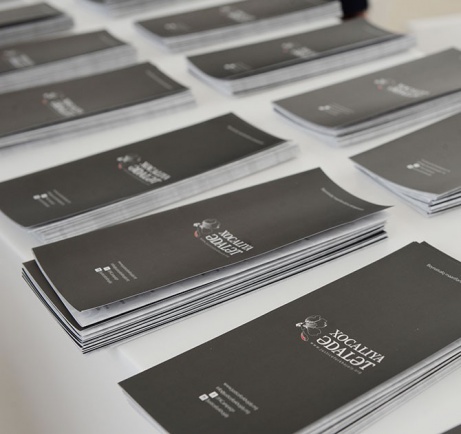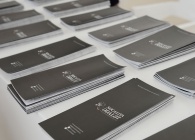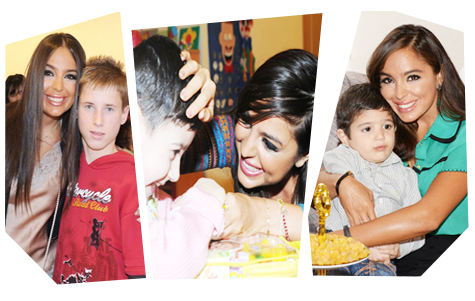
Family values are deep-rooted in Azerbaijan, and have been passed down from generation to generation since time immemorial. Care of youngsters, and respect for the elderly are cherished traditions in our country.

Commemoration dedicated to the 24th anniversary of the Khojaly genocide took place, February 26, with the support of the Heydar Aliyev Center and the Youth Foundation under the President of the Republic of Azerbaijan, within the framework of the international campaign “Justice for Khojaly”, founded in 2008 following the initiative of Vice-president of the Heydar Aliyev Foundation Leyla Aliyeva. Within the framework of the event, an exhibition comprised of works reflecting the Khojaly tragedy by well-known artists, sculptors of the country, as well as students and graduates of the Art Academy was arranged at the Heydar Aliyev Center.
Attending the commemorative event, Assistant to the President of the Republic of Azerbaijan for Public and Political Affairs Ali Hasanov, Director of the Heydar Aliyev Center Anar Alakbarov, public and political figures and citizens who have lost their relatives during the Khojaly genocide viewed the exhibition.
A composition called “White work”, devoted by world-renowned French sculptor-artist, author of 70 works dedicated to the genocide of Azerbaijanis Renaud Vincent Baltzinger was presented. Killed residents of Khojaly – a woman and children around her – are depicted in the work. The work embodies the love and respect for a mother on the one hand, and attachment to the Homeland-Azerbaijan and readiness for struggle for its freedom, independence and integrity, on the other.
After the familiarization with the exhibition, attendees of the event remembered our fellow-citizens who were killed during the Khojaly tragedy by a minute’s silence.
Addressing the ceremony, French sculptor-artist Renaud Vincent Baltzinger said he had been informed about the Khojaly by his brother, who had been working at the Azerbaijani Embassy of France.
According to him, his acquaintance with beautiful Azerbaijan was possible thanks to his brother.
The French artisan noted that after studying the Khojaly events in details, he expressed his impressions and feelings in the works being displayed: “I recall 613 victims killed in Khojaly. They were killed scoundrelly and cowardly. Today, I am in Azerbaijan in connection with commemorating the Khojaly victims. I’ve created a monument in memory of the Khojaly genocide victims. I’ve dedicated this monument to the people of Azerbaijan.”
The sculptor added that the Khojaly genocide may be called a real mass killing. According to him, it is unacceptable that the world has so far been keeping silence and not given just assessment of this tragedy: “These people have been killed scoundrelly. If today Garabagh is not free, this situation is unacceptable for Azerbaijanis.”
Then Khojaly resident Jeyran Azizova took the floor and talked about the cruelty committed by Armenian armed forces.
She said during the Khojaly tragedy, she lost 74 relatives, including her husband: “Today, there are 25 people in this hall who have lost their parents during that tragedy. Among them are my relatives too. I was 26 when these events happened. Although many years have passed, its terrible outcome cannot be forgotten".
J.Azizova, expressing gratitude for the care shown towards them by the state, and said she does not feel today lonely thanks to the support provided by the state.
Ukrainian pilot Leonid Kravets, one of the first witnesses of the Khojaly genocide, who had been steering a helicopter flying to pick up the corpses of the people killed during the genocide, said he had seen, after the Khojaly tragedy, the people killed with his own eyes and experienced these horrible moments.
Saying that he had flown to Khojaly, after the tragedy, to take there Azerbaijani correspondent Chingiz Mustafayev and crews of foreign journalists, Leonid Kravets named the Khojaly tragedy a real horror: "We saw a lot of human corpses. Civilians – women, elderly and children - were killed. We were shocked, we could not believe this could have happened. The most horrifying was that civilians were killed. It was unbelievable, they were killed at night, meanly and with cruelty. I am often asked what I felt then. Shocking senses. Those people were running towards Aghdam. They could have been rescued and remain alive if they had overcome another 2 km distance.”
Naming the Khojaly events one of the biggest tragedies of the 20th century, the pilot said it is very disappointing that the world failed to give just assessment of these event: “Unfortunately, international organizations behaved themselves as deaf, blind, and uninformed. ”
Then demonstration of the documentary “A Pilot who Saw the Hell” shot by the Ukrainian Azerbaijanis United Diaspora with the support of Vice-president of the Heydar Aliyev Foundation Leyla Aliyeva within the framework of the international campaign “Justice for Khojaly” took place. In the film, Ukrainian pilot Leonid Kravets, one of the first witnesses of the Khojaly genocide, who flew to the territory to pick up corpses of people killed during the genocide, describes the horrible scenes that saw on that day.
Information was given at the event about the works done since 2008 within the international campaign “Justice for Khojaly”. It was noted that the international campaign “Justice for Khojaly” has been carrying out works towards recognition of the Khojaly genocide on the international level, seeking indemnity for people who have suffered during the tragic event, making the perpetrators accountable, and immortalizing the memories of the genocide victims.
Presentation of a newly launched website of the international campaign “Justice for Khojaly” also took place at the event. It was noted that the website, along with being a wide source of resources with information about the Khojaly events, historical facts based on the first source, testimonies of witnesses, publications and books, as well as photo and video materials shot during the genocide, is also an interactive platform allowing Internet users to participate in the process of the campaign.
At the end of the event, a music programme dedicated to the Khojaly genocide was presented by the Youth Chamber Orchestra of the Baku Music Academy.

